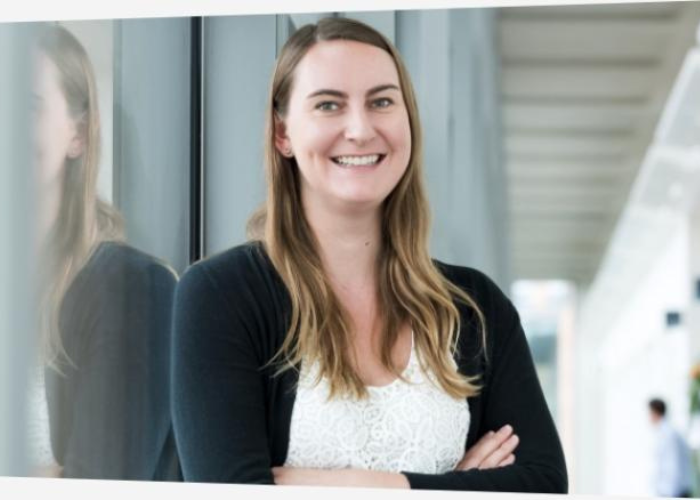
The interactions within the tumour microenvironment can impact the effectiveness of cancer treatment, which is why Dr. Katey Enfield has centred her new BC Cancer lab on studying the spatial interactions between cancer cells, tissues and structures within the lung and applying new technologies that maintain spatial organization.
“Immunotherapy drugs can reactivate the immune response against lung tumours,” notes the BC Cancer scientist. “Unfortunately, these drugs only work in a subset of patients so the work I will do will help us start to understand why they work in some patients and don’t work in others.”
As a postdoctoral fellow, Dr. Enfield studied the impact of immunotherapies on B cells, a type of immune cell that creates antibodies to fight infections and is also part of the immune response against tumours. High levels of B cells in lung tumours have been associated with improved responses to immunotherapies. Dr. Enfield’s work found that this is in part due to the generation of antibodies that target aberrantly expressed proteins in cancer cells, which are either overproduced or functionally different than they should be.
In the Enfield Lab, she will continue this work to understand what spatial multicellular relationships support a good B cell response in some patients but not in others. Profiling patient samples using spatial technologies will be a crucial part of this work as it will provide real-life examples of how these cells are organized in the lung tumour microenvironment.
“During my post-doc, I used an antibody-based technology that stained patient samples for 35 different markers at once,” says Dr. Enfield. “These are great tools as they allow you to see a lot of different information, and interrogate different cell types and drug targets at once.”
She adds that she’ll use similar platforms in her BC Cancer lab and will have the opportunity to work with newer technologies.
The former BC Cancer trainee completed her PhD under the leadership of Dr. Wan Lan. She says, “I came back to lots of familiar faces and mentors who I can continue to work with.”
Dr. Enfield aims to collaborate with clinicians to build a research biobank of samples from lung cancer patients. It will be crucial to tie observations from her lab to patient outcomes, and identify new cell interactions to disrupt in order to improve the response to therapy.
As a member of the Pro-Lung Research Network, Dr. Enfield will collaborate on lung cancer research with a diverse team of clinicians and scientists, including Dr. Stephen Lam, Dr. Wan Lam, and Dr. Callum McCaulay.
“I’m really excited about rebuilding my research network in Vancouver and British Columbia, and hopefully having some interesting cross-collaborations between BC and London – where I completed my postdoc. Team science was really important during my postdoc so it’s something I’d like to push moving forward with my research group,” Dr. Enfield adds.